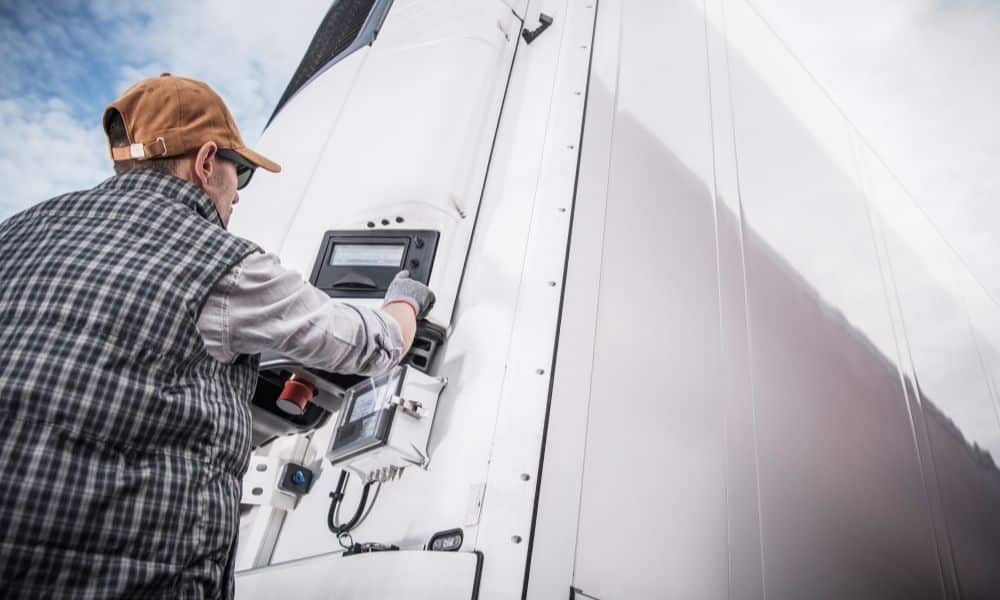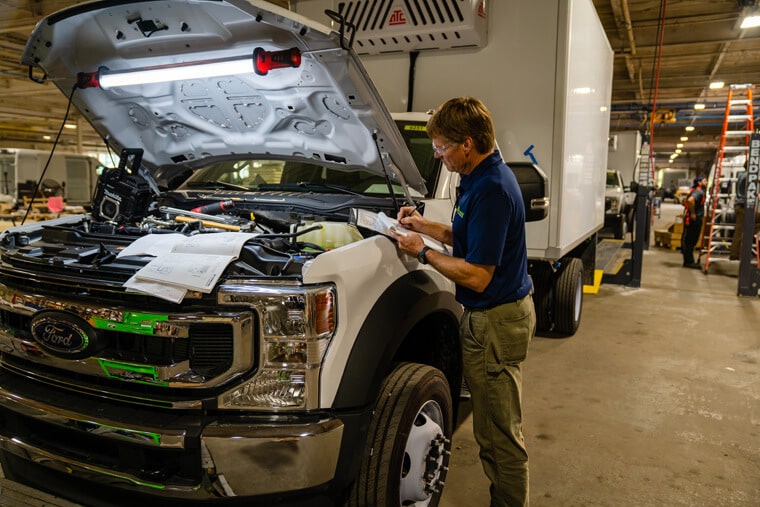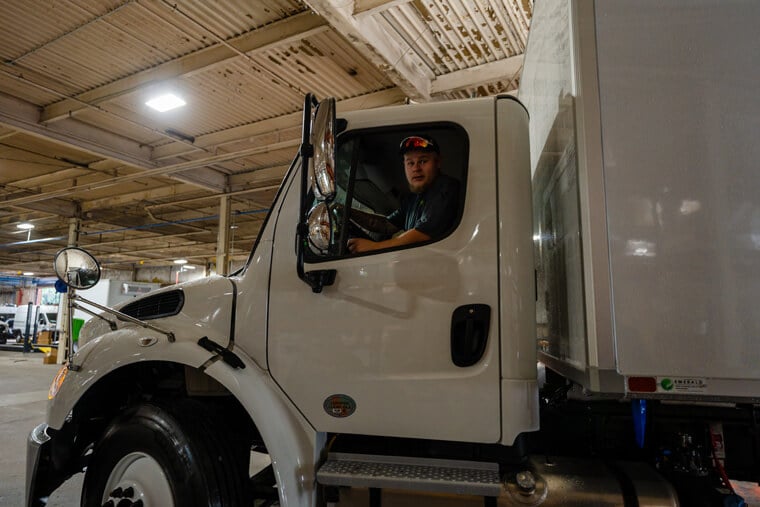
What to Look for in a Refrigerated Truck
Joe Dickman | January 31st, 2020
Companies use refrigerated trucks to transport foods and drinks, pharmaceuticals, floral arrangements, and any other product that needs to stay a certain temperature when being moved. To do this, companies need a vehicle with a consistently refrigerated body. If you want to purchase a vehicle for these purposes, here is what to look for in a refrigerated truck before you buy one.
Temperature
The hallmark feature of a refrigerated truck is its cooling capacity. If you’re transporting flowers, you likely don’t want them frozen during shipment. On the other hand, you cannot undercool foods such as milk or vegetables—this can spoil the product. Make sure your truck meets your unique needs for refrigeration and insulation.
Fuel efficiency
Refrigerated trucks guzzle a lot of gas. The cooling mechanism taxes the truck’s fuel economy, so refrigerated trucks have lower efficiency than typical box trucks. It’s particularly important to choose a truck that has features to address this issue—every mile per gallon higher means you save money on gas. One fuel-saving method is upping the insulation in the truck to avoid losing cold air. Another way to improve efficiency is to keep the truck’s overall weight low by using lightweight parts. Emerald Transportation Solutions has many lightweight refrigerated trucks for sale meant to conserve gas and keep you on the road longer than other trucks.
Right Size
Body size is another aspect to look for in a refrigerated truck. Depending on the size of your product or current operation scale, the truck’s size will vary. Consider buying a smaller truck to save money on purchase and gas costs or invest in a larger truck if you see your shipping needs growing soon.
Condition
If you’re buying a new refrigerated truck, there isn’t much to check when it comes to condition, but when going the used route, its condition is important. Make sure the used trucks you look at have the cooling equipment you want, and that the previous owner maintained it appropriately. Mind the truck’s overall drivability, too—a truck’s no good if its cooling features function but it can’t take your product where it needs to go.
Related Articles
Contact Us
Feel Free To Contact Us If You Have Any Questions
What does under DOT mean?
Questions regarding DOT requirements come up often. 10,000 lbs GVW (gross vehicle weight) and over are commercial vehicles that fall under the Department of Transportation regulatory requirements.
What is the difference between GVW and payload?
GVW or Gross Vehicle Weight is the entire weight of the vehicle including the payload. The payload weight represents the amount of cargo you are hauling.
What is a self-powered unit and a vehicle-powered unit?
A self-powered unit has its own fuel source and will run independent of the truck. This is the heaviest and most expensive option. While vehicle-powered units run off the engine via a compressor mounted on the engine. These are less expensive and lighter in weight but you must run the truck or plug the electric standby into shore power.
What does K-factor mean and why is that important?
K-factor is a term that stands for the overall insulating value of the container (truck body). Quite simply the lower the K-factor the better the truck body will be able to maintain a given temperature and require less energy to do so.
How much lighter is a Poly Van vs a US spec body?
Poly Van bodies are very light. On average we estimate we are 75-150 lbs per foot lighter than a traditional sheet and post foamed in place body. These weight savings translates to less fuel burn and less CO2 emissions, along with added payload, the most important benefit.






